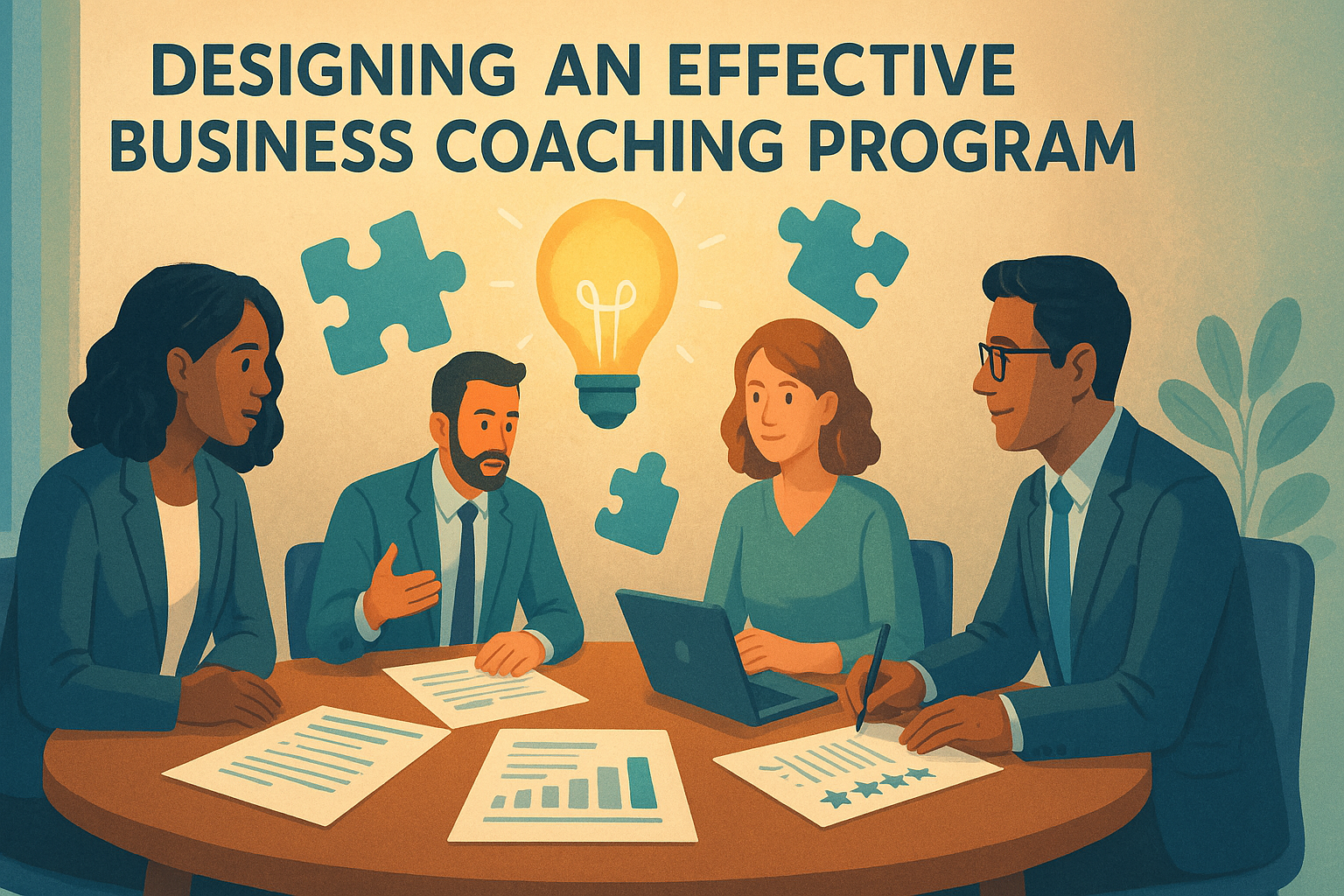Designing a Business Coaching Program that Drives Success
In today’s fast-paced business world, having an effective coaching program can be the game-changer your company needs. Whether you’re a seasoned entrepreneur looking to refine your approach or a fresh startup aiming to scale new heights, a well-designed business coaching program can provide the roadmap to success. 🌟
Understanding the Essence of Business Coaching
Before diving into the intricacies of program design, it’s essential to grasp what business coaching truly entails. At its core, business coaching is about developing strategies that empower individuals and teams to reach their full potential. It’s a collaborative process that focuses on setting goals, overcoming obstacles, and cultivating skills that lead to personal and professional growth.

Unlike traditional consulting, where the consultant provides solutions, business coaching encourages clients to discover their own answers. This approach fosters a deeper understanding and commitment to the goals set during the coaching process.
Identifying the Needs of Your Audience
To design an effective business coaching program, start by identifying the specific needs of your target audience. This involves conducting thorough market research and gathering feedback from potential clients. Understanding their challenges, aspirations, and preferred learning styles will help you tailor a program that resonates with them.

For example, if your audience consists of small business owners, they might need guidance on financial management, marketing, or leadership skills. On the other hand, corporate executives might seek coaching on strategic planning, team building, or innovation.
Setting Clear and Achievable Goals
A successful business coaching program is built on clear and achievable goals. These should be specific, measurable, attainable, relevant, and time-bound (SMART). Establishing such goals helps both the coach and the coachee stay focused and motivated throughout the coaching journey.
For instance, a goal might be to increase a company’s revenue by 20% within a year by implementing new sales strategies. By having a clear target, the coaching sessions can be more structured and result-oriented. 🎯
Designing the Program Structure
The structure of your coaching program is crucial in determining its effectiveness. Consider the following elements when designing your program:
1. Duration and Frequency
Decide on the length of the program and how frequently sessions will occur. A typical coaching program might last anywhere from three to twelve months, with sessions held weekly or bi-weekly. The key is to find a balance that allows for progress while accommodating the client’s schedule.
2. Content and Resources
Develop a curriculum that covers the essential topics identified during the needs assessment. Incorporate a mix of resources such as reading materials, case studies, and interactive exercises to engage participants and enhance learning.
3. Delivery Method
Choose the delivery method that best suits your audience’s preferences. This could be one-on-one sessions, group workshops, online webinars, or a combination of formats. With the rise of digital communication tools, offering virtual coaching options can expand your reach and accessibility. 💻
Incorporating Feedback and Continuous Improvement
Feedback is a vital component of any successful coaching program. Encourage participants to provide honest feedback on their experience, and use this information to make necessary adjustments. This iterative process of continuous improvement ensures that your program remains relevant and effective over time.
Regularly reviewing outcomes and measuring progress against the set goals can also provide valuable insights into the program’s impact. This data-driven approach can help you refine your strategies and demonstrate the program’s value to potential clients.
Building a Strong Coach-Client Relationship
At the heart of any coaching program is the relationship between the coach and the client. Building trust and rapport is essential for creating a safe space where clients feel comfortable sharing their challenges and aspirations.
Active listening, empathy, and open communication are key skills that coaches must hone to foster this relationship. Remember, a successful coaching program is not just about imparting knowledge but also about inspiring and motivating clients to reach their full potential.
Conclusion: Crafting a Pathway to Success
Designing a business coaching program that drives success is a thoughtful and strategic process. By understanding your audience, setting clear goals, structuring the program effectively, and continuously refining your approach, you can create a coaching experience that empowers individuals and organizations to thrive.
As you embark on this journey, remember that the true measure of success lies in the positive transformation and growth of those you coach. With dedication and passion, your coaching program can become a catalyst for change and a beacon of success for many. 🚀
BOOK A NO COST CONSULTATION
Discover how Rhino Consulting can help you manage your business with top to bottom strategies.

